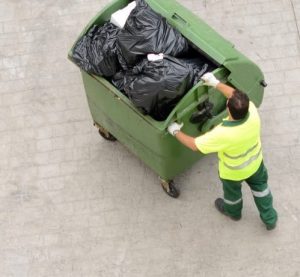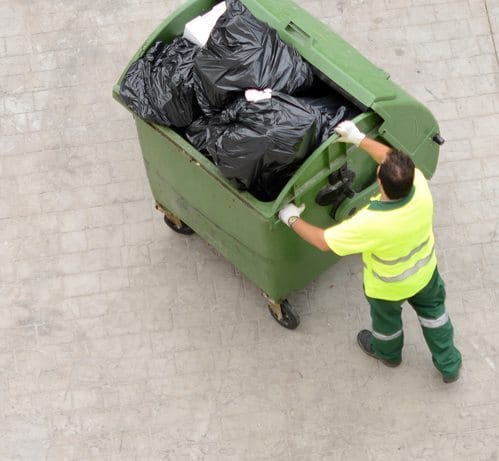
Following the 1940s, as the buildup of waste increased alongside environmental concerns, the need for better dumpster moving equipment and recycling became increasingly apparent.
1950s
Consumers are sold on the idea that single-use items are a necessity of modern life. Ease and convenience trump all restraint and the ‘throwaway era’ is born. Green space and highways become littered with trash.
1960s
Aluminum cans are introduced, with manufacturers quickly identifying opportunities for recycling/reuse, resulting in a massive recycling system. The symbol for ‘Reduce, Reuse, Recycle’, the Mobius Loop, is introduced to raise environmental awareness.
1970s
The first Earth Day brings attention to the overabundance of waste and importance of recycling. The ‘Bottle Bill’ is born, enticing consumers with a refundable nickel deposit as incentive to recycle bottles/cans. The nation’s first recycling mill is erected in Pennsylvania as curbside recycling pickup is introduced in other states. The Federal Resource Conservation and Recovery Act creates disposal and landfill standards for typical/hazardous waste.
1980s
Recycling initiatives (‘blue box’ and curbside projects) increase, with some cities mandating recycling. Curbside recycling programs are 1,050 strong.
1990s
McDonald’s gives Styrofoam the boot. Curbside programs reach 5,404 strong, and recycling centers 10,000+. A record 47.6-billion soft drink containers are recycled in ’95 (63%-U.S./80%-California) alongside 62 billion cans. The U.S. rate of recycling is 25%.
Early 2000s
EPA confirms the global warming/waste connection. In efforts to reduce greenhouse emissions, 5 states require electronics recycling; Dell offers free recycling for their products. SanFran bans plastic grocery bags.
Late 2000s
585 million+ pounds of consumer electronics are recycled in 2012, up 25% from 2011. California bans plastic grocery bags state-wide. China’s recycling import bans force the U.S. to step-up recycling practices.
Dumpster moving equipment dated or non-existent? Contact DJ Products today.
